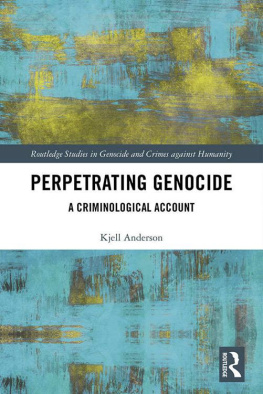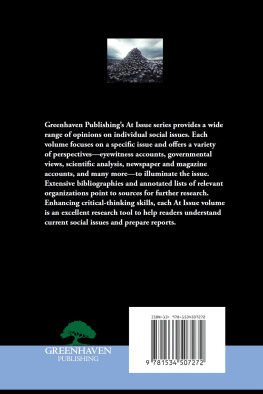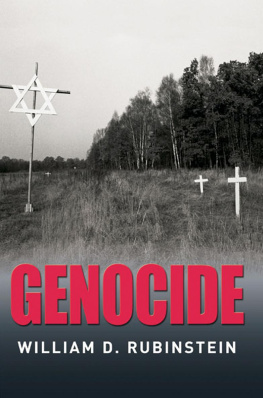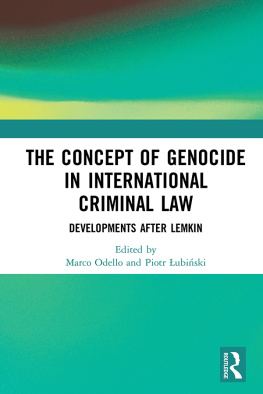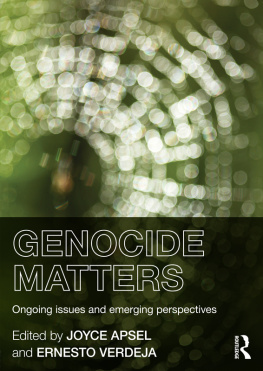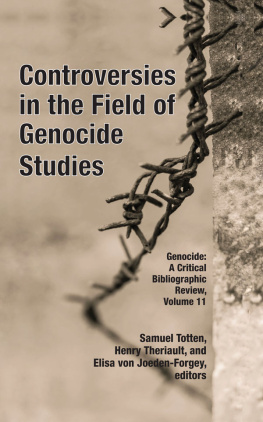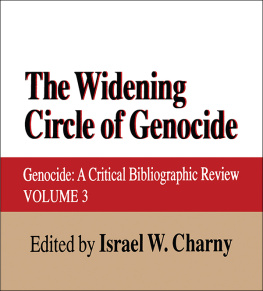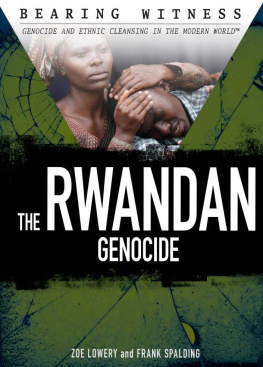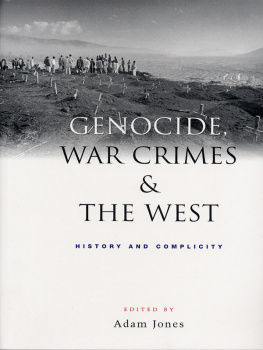Perpetrating Genocide
Focusing on the relationship between the micro level of perpetrator motivation and the macro level normative discourse, this book offers an in-depth explanation for the perpetration of genocide. It is the first comparative criminological treatment of genocide drawn from original field research, based substantially on the authors interviews with perpetrators and victims of genocide and mass atrocities, combined with wide-ranging secondary and archival sources. Topics covered include: perpetration in organizations, genocidal propaganda, the characteristics of perpetrators, decision-making in genocide, genocidal mobilization, coping with killing, perpetrator memory and trauma, moral rationalization, and transitional justice.
An interdisciplinary and comparative analysis, this book utilizes scientific methods with the objective of gaining some degree of insight into the causes of genocide and genocide perpetration. It is argued that genocide is more than a mere intellectual abstraction it is a crime with real consequences and real victims. Abstraction and objectivity may be intellectual ideals but they are not ideally humane; genocide is ultimately about the destruction of humanity. Thus, this book avoids presenting an overly abstract image of genocide, but rather grounds its analysis in interviews with victims and perpetrators of genocide in Rwanda, Burundi, Uganda, Bosnia, Cambodia, Bangladesh, and Iraq.
This book will be highly useful to students and scholars with an interest in genocide and the causes of mass violence. It will also be of interest to policy-makers engaged with the issues of genocide and conflict prevention.
Kjell Anderson is an interdisciplinary scholar specializing in the study of mass violence, and is currently an Affiliated Research Fellow of the Centre for International Criminal Justice at the Vrije Universiteit Amsterdam.
Routledge Studies in Genocide and Crimes against Humanity
Edited by Adam Jones
University of British Columbia in Kelowna, Canada
The Routledge Studies in Genocide and Crimes against Humanity series publishes cutting-edge research and reflections on these urgently contemporary topics. While focusing on political-historical approaches to genocide and other mass crimes, the series is open to diverse contributions from the social sciences, humanities, law, and beyond. Proposals for both sole-authored and edited volumes are welcome.
For more information about this series, please visit: www.routledge.com/
Routledge-Studies-in-Genocide-and-Crimes-against-Humanity/book-series/RSGCH
The Structural Prevention of Mass Atrocities
Understanding Risks and Resilience
Stephen McLoughlin
Constructing Genocide and Mass Violence
Society, Crisis, Identity
Maureen Hiebert
Last Lectures on the Prevention and Intervention of Genocide
Edited by Samuel Totten
Perpetrating Genocide
A Criminological Account
Kjell Anderson
The United States and Genocide
(Re)Defining the Relationship
Jeffrey S. Bachman
Perpetrating Genocide
A Criminological Account
Kjell Anderson

First published 2018
by Routledge
2 Park Square, Milton Park, Abingdon, Oxon OX14 4RN
and by Routledge
711 Third Avenue, New York, NY 10017
Routledge is an imprint of the Taylor & Francis Group, an informa business
2018 Kjell Anderson
The right of Kjell Anderson to be identified as author of this work has been asserted by him in accordance with sections 77 and 78 of the Copyright, Designs and Patents Act 1988.
All rights reserved. No part of this book may be reprinted or reproduced or utilized in any form or by any electronic, mechanical, or other means, now known or hereafter invented, including photocopying and recording, or in any information storage or retrieval system, without permission in writing from the publishers.
Trademark notice: Product or corporate names may be trademarks or registered trademarks, and are used only for identification and explanation without intent to infringe.
British Library Cataloguing in Publication Data
A catalogue record for this book is available from the British Library
Library of Congress Cataloging in Publication Data
Names: Anderson, Kjell Follingstad, 1977 author.
Title: Perpetrating genocide : a criminological account / Kjell Anderson.
Description: Abingdon, Oxon ; New York, NY : Routledge is an imprint of the Taylor & Francis Group, an Informa Business, [2018] | Series: Routledge studies in genocide and crimes against humanity | Includes bibliographical references and index.
Identifiers: LCCN 2017034780| ISBN 9781138648814 (hbk) | ISBN 9781315626239 (ebk)
Subjects: LCSH: GenocideResearch. | GenocideCase studies. | Mass murderersResearch. | Mass murderersCase studies.
Classification: LCC HV6322.7 .A63 2018 | DDC 364.15/1dc23
LC record available at https://lccn.loc.gov/2017034780
ISBN: 978-1-138-64881-4 (hbk)
ISBN: 978-1-31562-623-9 (ebk)
Typeset in Times New Roman
by Wearset Ltd, Boldon, Tyne and Wear
It has been said that evil is the absence of empathy.
If evil is the absence of empathy, then hell is the absence of hope.
I dedicate this work to empathy and to hope.
Contents
Illustrations
Figures
6.1 Perpetration process
8.1 The genocidal techniques of neutralization
9.1 The decreasing cost margin of perpetration
Tables
1.1 Rwanda interview sample occupation in 1994
1.2 Location of Rwandan perpetrator interviews
4.1 Typology of genocidal propaganda
6.1 Authority figures at killing sites in Rwanda
Boxes
4.1 The moral context of genocidal propaganda
6.1 Assessment of victim vulnerability
Acknowledgments
This book is a work of both the head and the heart. Such an undertaking would not have been possible without the help of many individuals and institutions.
I have benefited greatly from the support of my friends and family, so I must thank them first and foremost. My father, Alan Anderson, was particularly invaluable in closely reading my drafts and providing both substantive and copyediting suggestions. Ingjerd Veiden Brakstad was a great support throughout, reading my drafts, and undoubtedly making my ideas better.
This book began as a thesis, so I must also recognize the guidance and support of my committee, particularly my supervisor, William Schabas, who was instrumental to the success of this project. Thank you also to my internal examiner, Shane Darcy, and my external examiner, Alex Hinton, for their thoughtful input. Frank Chalk and Ray Murphy each read parts of the thesis draft. The Irish Centre for Human Rights provided a supportive and enriching home base for my thesis research, as well as lasting friendships.
I was assisted by many other research bodies including: the Montral Institute for Genocide and Human Rights Studies at Concordia University; the Centre for Human Rights and Citizenship at West Bengal National University of Juridical Sciences; the Centre for Research into Indo-Bangladesh Relations in Kolkata; the Documentation Centre for Cambodia; the Peace Palace Library; the Bophana Resource Centre; the National Library of India; the Research and Documentation Centre (Sarajevo); the Institute for the Research of Crimes Against Humanity and International Law (Sarajevo); the National University of Rwanda (especially Justine Mbabzi and David Mwesigwa); the Commission National pour la Lutte contre le Gnocide (CNLG); the Ministry of Internal Security (Rwanda); and the TIG Administration (Travaux dIntrt Gnral, particularly Bizimana Evariste).

